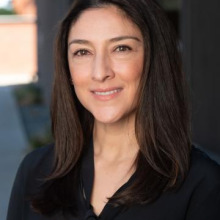
Melissa Y. Delgado, Ph.D.
Associate Professor
HDFS Graduate Director
Human Development and Family Science
McClelland Park Room 235J
650 N Park Ave
Tucson, Arizona 85721-0078
(520) 621-5575
mydelgado@arizona.edu
The graduate program offers a Doctoral (Ph.D.) degree with an emphasis in Human Development and Family Science (HDFS). For specific program requirements and information, please see the HDFS Graduate Program Handbook. You can also download our Checklist for Plan of Study. See also the HDFS Graduate Minor Handbook.
We admit graduate students whose goal is to earn a Ph.D. in Human Development and Family Science, which typically takes at least five years of full-time study to complete. We do not provide training in counseling or clinical skills.
The HDFS graduate program curriculum is designed to provide broad exposure to developmental and interpersonal and family theories, to develop research skills and expertise, and to build in-depth knowledge in a content area chosen by the student.
Ph.D. Program in HDFS
Students interested in research, consulting, and/or teaching at the college level may pursue a doctoral degree with a concentration in family studies and human development. The program typically takes five years and combines advanced study in human development with family and interpersonal theories, research, and special topics.
Courses required for the Ph.D. include Analysis of Family Studies, Theories of Human Development, Foundations of Family and Interpersonal Theory, Application of Family and Interpersonal Theory, Research Methods, Statistics, and special topics seminars chosen based on student interests. Doctoral students also complete coursework in a chosen minor area.
Recent program graduates have taken positions as research scientists and professors in the fields of human development and family studies, family health, adolescent sexuality, criminal justice, psychology and anthropology.
MS/Ph.D. in Human Development and Family Science
After completing required coursework and a Master's thesis, a MS degree is earned. Additional requirements for the Ph.D. include a pre-candidacy meeting, minor and major coursework, comprehensive exams and a dissertation. We do not offer a stand-alone masters in the counseling or clinical areas.
Benefits of Human Development and Family Science Ph.D. Program Include:
- the chance to work with professors with well-established research and teaching reputations and successful grant histories
- a regular colloquium series featuring leading researchers in the field
- grants to support thesis and dissertation research
- a strong record of supporting students on assistantships
- opportunities for co-authorship of research publications and presentations
- an excellent career placement record
- financial support to attend national conferences and conduct research
- leadership opportunities through student roundtables and participation in faculty meetings and committees
Faculty Mentoring and Research Opportunities
The doctoral program follows an apprenticeship model in which students work closely with a faculty mentor. Faculty and Students conduct research generally in the core research areas of: Resilience and Health of Marginalized Populations, Early Childhood and Adolescent Development, Romantic and Family Relationships Across the Lifespan, Innovative Methods and Models for Studying Families and Development. Learn more about each of these core research areas and the faculty that specialize in each by visiting https://norton.arizona.edu/CoreResearchAreas
Research Initiatives
Supported by the Frances McClelland Institute, HDFS faculty and graduate students are actively involved in three research initiatives: Youth Development and Resilience, Latinx Families, and Early Relationships and Children’s Development.
Counseling
We do NOT provide training or coursework in counseling, therapy or diagnosis of clinical disorders. Our Master's and doctoral programs do not lead to licensure as a mental health professional. Prospective students who are interested in careers in mental health services should seek information elsewhere, including the American Psychological Association (www.apa.org), the American Association of Marriage and Family Therapists (www.aamft.org) and National Association of Social Workers (naswvt.org).
Current Graduate Students
Click here for resources for current graduate students!
Future Graduate Students
Click here if you are interested in becoming a future graduate student!

